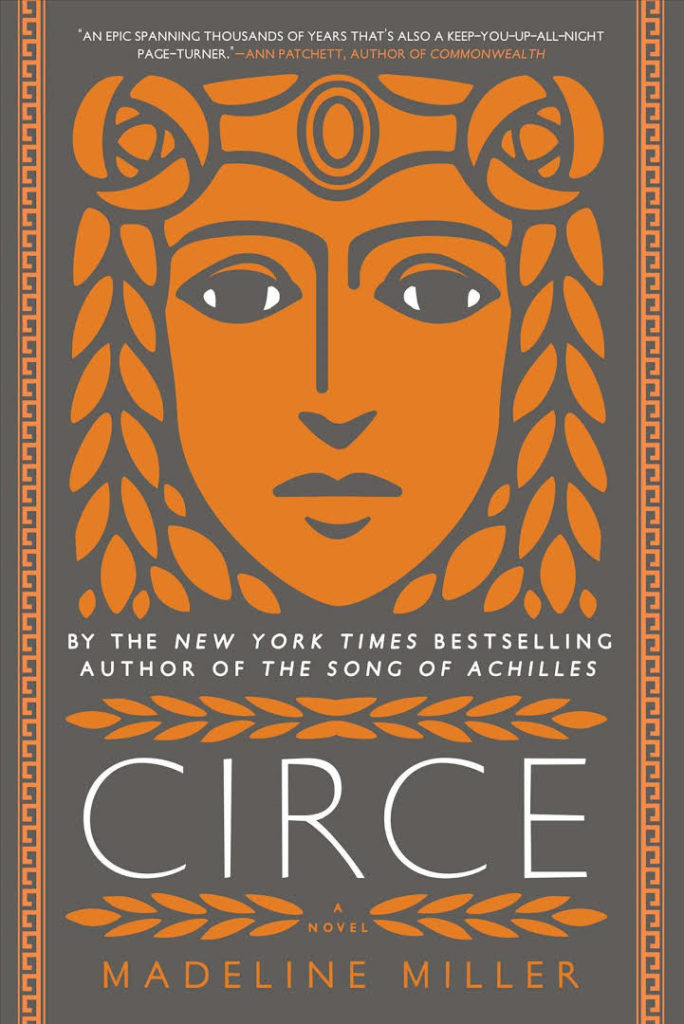Chris’s Pick
November, 2018
Circe
Madeline Miller
Published April 2018
The epic poet, Homer, gave us two of western civilization’s key works in the Iliad and the Odyssey. As a young girl, I was mesmerized by the myths of the Greek gods and goddesses depicted in these stories.
Circe appears in the Odyssey as a witch-goddess living on her island of Aiaia, where, myth tells us, she turns Odysseus’ men into swine, then later seduces him to live with her for a year. Now, Madeline Miller explores a reason behind the “madness” and gives us this enthralling novel.
Written in the first person, we first meet the nymph Circe as an un-loved child, daughter of the sun-god Helios. Her disapproving mother discourages her to speak, her voice is so loathsome to hear (Circe learns much later from Hermes that her voice sounds like a mortal). She turns to the world of mortals for companionship and discovers her own power through witchcraft. Headstrong, passionate, and impulsive, Circe uses her skill in a jealous rage, and turns the nymph Scylla into a six-headed monster who devours seamen who mistakenly sail too close to her island. Threatened by her witchcraft, Zeus punishes Circe by banishing her to Aiaia forever, where she must live alone.
Truly alone, without protection from her family, Circe must learn to safeguard her island and herself, and does so by weaving protective spells for the next thousand(?) years (she is immortal, after all). Then, about halfway through the book, Odysseus arrives on her island and she becomes enchanted by this mortal. Followed by motherhood, Circe discovers a love more powerful than she has ever felt, and with that, new fears. For, with the appearance of Odysseus, we also get the fearsome Athena (by far, my favorite goddess as a child—I may have to reconsider that now.)
This is a captivating story, and throughout the book we revisit other stories so familiar to us—of the Minotaur (birthed by Circe’s sister in Knossos); of Daedelus and Icarus, of Circe’s niece Medea, who she tries to counsel. We are reminded of the battle between the Titans and the Olympians and of the cruelty of the gods.
Madeline Miller’s Circe is a woman who loves, suffers, grieves, and yearns, and yet has enormous strength that can only be dredged from her own self. Though we might not have recognized it seven thousand years ago when these myths were born, Circe is a goddess-feminist!
In the review by the Washington Post, Ron Charles writes:
…Which is one of the most amazing qualities of this novel: We know how everything here turns out — we’ve known it for thousands of years — and yet in Miller’s lush reimagining, the story feels harrowing and unexpected. The feminist light she shines on these events never distorts their original shape; it only illuminates details we hadn’t noticed before.
I don’t think you need to have read the Odyssey, or have more than a passing interest in the Greek gods to love this book, but it helps. I kept my iPad nearby to remind me who the latest character was as they passed through the page, only to find at the end of the book a pretty concise explanation of who’s who in that world. Wonderful reading, well–written, this book kept me up at night to finish.
